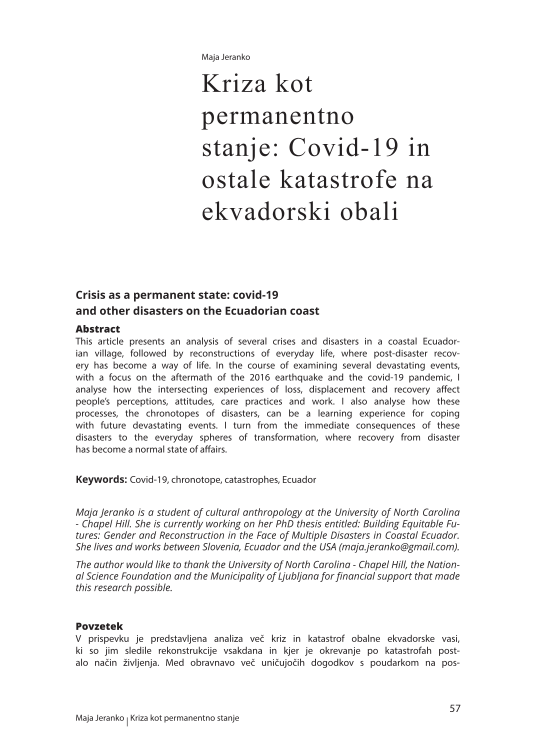This article presents an analysis of several crises and disasters in a coastal Ecuadorian village, followed by reconstructions of everyday life, where post-disaster recovery has become a way of life. In the course of examining several devastating events, with a focus on the aftermath of the 2016 earthquake and the covid-19 pandemic, I analyse how the intersecting experiences of loss, displacement and recovery affect people’s perceptions, attitudes, care practices and work. I also analyse how these processes, the chronotopes of disasters, can be a learning experience for coping with future devastating events. I turn from the immediate consequences of these disasters to the everyday spheres of transformation, where recovery from disaster has become a normal state of affairs.




